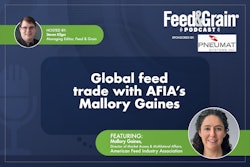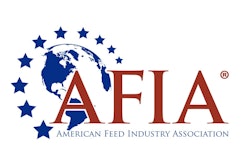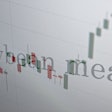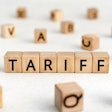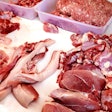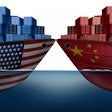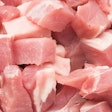
Farmers are among the agrifood groups concerned about the impacts of a new trade agreement with Ukraine on European Union (EU) poultry meat and eggs markets.
Earlier this week, the three main institutions of the European Union (EU) reached agreement to extend the current trade measures with Ukraine.
However, the bloc’s farming cooperative organization, COPA-COGECA has given a lukewarm response to the latest proposals.
Also representing the Association of Poultry Processors and Poultry Trade in the EU countries (AVEC), the European Union of Wholesale in Eggs, Egg Products, Poultry and Game (EU-WEP), and the trade bodies for the corn (maize) and sugar beet sectors, COPA-COGECA said that the latest position does not reflect the position taken at a recent plenary meeting of the European Parliament (EP).
As the deadline approached for the end of the current trade deal with Ukraine, EU farming organizations have been calling for changes that would bring them greater protection from imports of Ukrainian agri-food exports.
Following an EP plenary meeting in mid-March, some key changes were expected for the new agreement, which is due to commence in June of this year.
However, COPA-COGECA reports that the only concession appear to be an adjustment to the reference period used for assessing market impacts. Furthermore, it says, neither wheat nor barley have been included in the latest proposals — contrary to its expectations.
While confirming its continued support for Ukraine and its agri-food producers in the face of Russian aggression, the body says that volumes exported to the EU under the current Autonomous Trade Measures (ATM) are substantial.
“This solidarity cannot rest solely on the shoulders of farmers,” said the COPA-COGECA statement, “and the example of this ATM should collectively force us to better anticipate further measures to integrate Ukraine.”
More protection promised for EU poultry, egg farmers
This week, the Parliament and Council reached agreement on trade support for Ukraine that does offer more protection for EU farmers, according to an EP statement.
Members of the EP (MEPs) and the Council presidency have agreed to extend for a further 12 months the suspension of import duties and quotas on Ukrainian agricultural exports to the EU.
However, measures to protect EU farmers will be reinforced, it says.
Furthermore, there is an “emergency brake” in place for sensitive products, which include poultry meat, eggs, sugar, oats and corn. This means that tariffs on these products will be re-imposed if the import volumes exceed those for the reference period. This reference period now starts in June of 2021 and ends in December of 2023.
The European Commission has also committed to monitoring grain imports, particularly those of wheat.
These proposals are now subject to final agreement by the EP and the Council. Once agreed, the new regulations will come into effect as the previous measures expire on June 5, 2024.
Sharp rise in Ukrainian poultry exports to EU
Latest data from Eurostat show significant increases in the volume of poultry exports to the EU in 2023 compared with the previous year.
For poultry meat, the year-on-year volume was 42% higher than in 2022 at around 231,600 metric tons (mt). Ukraine was the second-largest exporter to the bloc last year behind Brazil. Total EU poultry meat imports in 2023 amounted to almost 894,500mt — a year-on-year increase of 4.7%.
Last year, egg imports by the EU were 78% higher than in 2022 at just under 90,000mt, based on data from the same source. Already the largest exporter to the bloc in this product category, Ukraine’s volume more than doubled from the previous year to 54,700mt.
Evolution of EU-Ukraine trade deals
Under the EU-Ukraine Association Agreement, Ukrainian companies have benefited from preferential access to the EU market since 2016.
After Russia launched its war of aggression in early 2022, the EU put in place autonomous trade measures (ATMs) with Ukraine, which allow duty-free access to the EU for all the country’s products. The measures were extended by one year in 2023.
In January of this year, the Commission proposed to renew the tariff suspension for a further year, but with safeguards to protect the EU market.
The European Council and Parliament reached an agreement on the regulation in March, but the member states opted to make amendments. This required new negotiations, which ended with the latest provisional deal.



